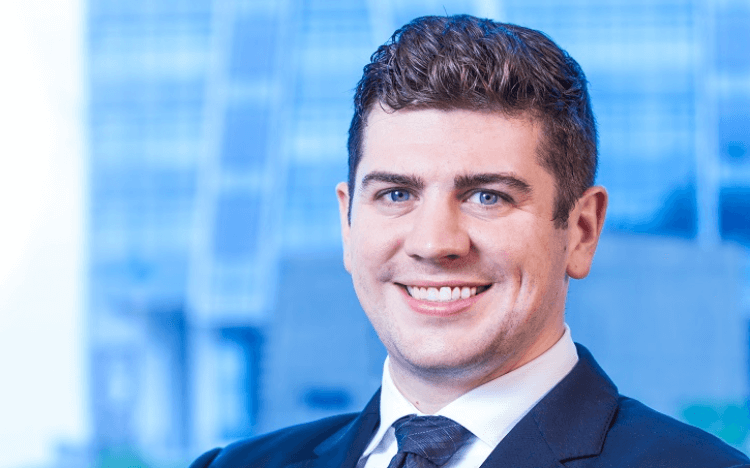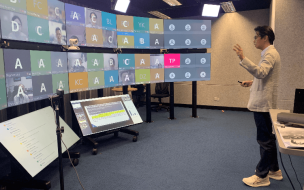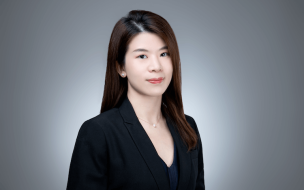The electrical engineering undergrad began his career as an engineer-in-training for telecommunications firm, TELUS, in Canada, and was charged with improving the company’s wireless network and building out their next generation of services.
But he had always had an interest in the customer side of the business, and so he transitioned to product management.
That role satisfied his passion for pairing business with technology, and how the intersection of the two impacts customers. Fast-forward three years and he’s now the director of digital strategy and transformation for MetLife, in Hong Kong.
In that role he’s having to combine working for a large, multinational corporation with the mindset akin to a quick, dynamic startup. He says a growth hacking internship for a cryptocurrency firm during the MBA prepared him to think like an entrepreneur.
Why study an MBA?
While at TELUS, Daniel developed an urge to go back to school and to develop his understanding of global business. He was also after a new career.
An MBA stood out as the logical choice because it could introduce him to new people and experiences and provide access to opportunities he wouldn’t otherwise have.
“I felt the HKUST MBA maximized both those benefits,” he says. “I had the opportunity to not only learn things in class but learn from classmates and the city around me. I felt an MBA was the right catalyst for my career at that point and HKUST provided the most opportunities.”
Daniel says Asia also prevailed because he had a desire to connect business with technology and looking at Hong Kong, he saw a global financial hub grappling with quick, technological change.
“For someone interested in tech and business and the world around them, Hong Kong and the region provides so many types of interesting problems and things to explore.”
Growth hacking and thinking like a startup
Growth hacking is a marketing field focused on quick, blitz-paced growth. Its origins lie in early-stage startups who need huge growth in a short space of time with limited resources—it is a mentality that has also found its way into bigger corporations.
During the HKUST MBA, Daniel landed a growth hacking internship with cryptocurrency firm, Gatecoin. He joined the program in 2017, an exciting time for cryptocurrency, he explains, and being in one of the world’s financial hubs there were opportunities aplenty.
“For me the benefit was working at a startup which I hadn’t done before, in a fast-moving industry, and I thought it was a great intro to working in Hong Kong and fintech.”
There are definite overlaps between his internship there and the role he currently holds for MetLife, he adds. Although the company has been around for over 150 years, they are currently grappling with digital transformation and so need leaders like Daniel who can couple a corporate mindset with entrepreneurial innovation.
“In the area I’m in we’re trying new things and to interact with customers and Asians in new ways, so there is a startup atmosphere in my team.”
Going from the MBA to a new career in digital transformation
After his internship with Gatecoin, Daniel worked for MetLife in New York for three months on another internship—the company has in the past hired a number of HKUST MBA graduates.
He worked in the company’s global technology and operations team, and says he had the opportunity to interact with multiple colleagues who had worked globally and in Asia during that time.
“I stressed I wanted to be working on the technology side, and how it impacts a business. A digital transformation role was perfect for that as you really get to see how the technology you’re building changes the way people’s day to day work operations change, the way customers interact with the company, and it ultimately has the impact of driving results for the business.”
His internship was a success, and MetLife hired Daniel full-time after he graduated, straight into his current role, in Hong Kong.
“When I think of the MBA, it really broadened my views on how tech can be implemented. I took a class on trading algorithms, where the professor used the R programming language to show how you’d implement a trading strategy.
“That was a completely new area for me so by the end of the course I understood what was going on and how to do that. It really opened doors.”
The HKUST MBA prepares students to marry business with technology
Business meets technology on the HKUST MBA. Daniel says it gave him a broad skillset that makes him feel like he can handle any challenge and rely on the experiences he had on the MBA to take on new leadership opportunities.
The school offers students flexible core courses on data analysis, financial modelling, programming in Python or R, and artificial intelligence. There are also electives covering fintech and big data financial analytics, technology entrepreneurship, and managing creativity and innovation.
“You see the changes happening a lot faster than in North America,” Daniel says of digital transformation.
“HKUST is uniquely positioned to be a facilitator of that research and development, so being at a business school within a science and technology university is the right fit for someone interested in the intersection between those two things.”
Student Reviews
HKUST Business School








